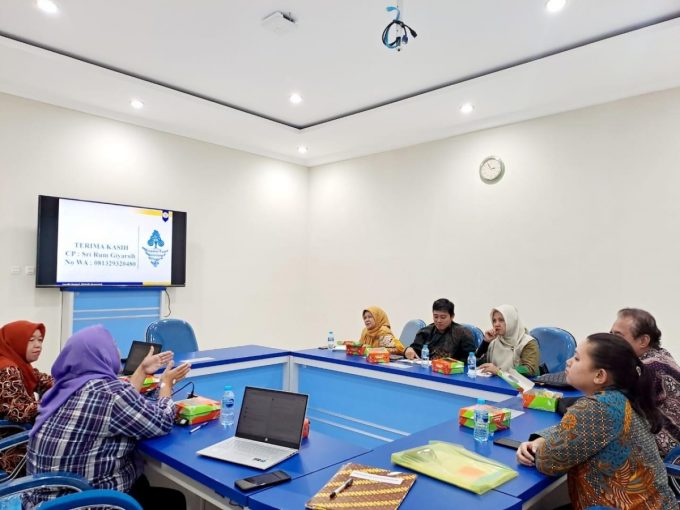

On May 16th 2024, the Regional Research and Development Agency (BP2D) or better known as Balitbang West Java Province carried out a working visit in the context of a comparative study regarding demographic studies with the Population Doctoral Program at Gadjah Mada University Postgraduate School. Discussion and sharing session activities were held in Meeting Room B101, Building B, Faculty of Geography, UGM.
The urgency of implementing this demographic study benchmarking is the current momentum or demographic bonus phase is both an opportunity and a threat. It is a big step in formulating the direction of demographic policy with the theme “Study of Population Growth and Development in West Java Province Facing the Challenge of the Demographic Bonus”, especially in the context of optimizing the use of the demographic bonus in West Java for the 2024 fiscal year.

Prof. Dr. Sri Rum Giyarsih, S.Si., M.Sc., Chair of the Population Doctoral Study Program gave a warm welcome with an introductory presentation regarding the study program profile. The explanation given is regarding the vision, mission, goals and strategy of the study program in creating a quality education environment in accordance with the SDGs pillars and university performance targets with the tri dharma of higher education which is a basic obligation and must be fulfilled by higher education institutions.
The activity continued with a discussion regarding the challenges of the demographic bonus in West Java Province. “BP2D West Java Province carried out this study to identify trends and patterns of population growth as a first step in formulating policies related to population aspects to optimize the potential demographic bonus and move towards the golden generation of 2045,” said Inge Wahyuni, S.K.M., M.P.P., M.T., Head of Social Affairs and West Java Research and Development Research and Development Agency.

The World Population Prospects 2022 report (UN, 2022) shows that the total world population will reach 8 billion people on November 15 2022. Indonesia is ranked fourth in the world as the country with the largest population. This is a challenge for the Indonesian nation to utilize its population to provide benefits or positive impacts for development, especially in the long term.
The demographic bonus is a serious issue to be discussed because it has an impact on the population pillars as stated in the Grand Design for Population Development (GDPK) in realizing population development targets in accordance with Presidential Regulation No. 153 of 2014. Controlling population quantity, improving population quality, directing population mobility, developing families and developing a population database are the 5 population pillars launched by the government.
The West Java BP2D meeting and the Population Doctoral Study Program were the beginning to strengthen the alliance to achieve the strategic goal of how to respond to the demographic bonus that is currently occurring in Indonesia. The tridharma of higher education, namely education, research and community service, is the primary instrument for bridging cooperation between the two parties in preparing plans and methods that will be implemented.
This activity is in line with pillar 1 of SDGs Quality Education and pillar 17 of SDGs Partnership to achieve goals.
Author: Siti Muyasaroh
